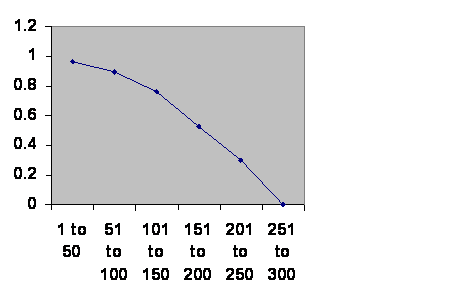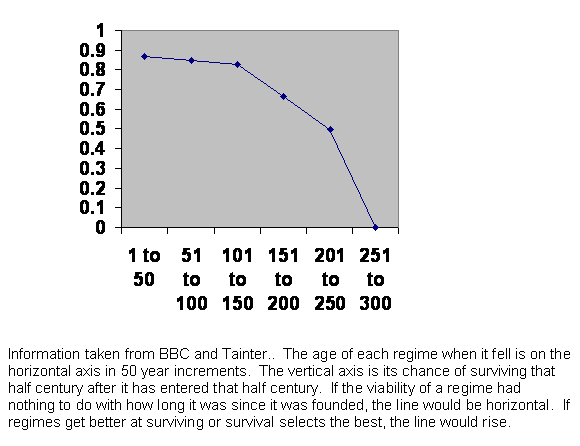
November 9, 2010
Larry Pierce
c/o Masterbooks
P.O. Box 726
Green Forest, AR 72638
Dear Larry Pierce,
I have for years wanted to read Newton’s Revised History of Ancient Kingdoms, but thought it would be unavailable and impenetrable. It is now published as edited by you and is a most delightful read. (Newton's Revised History on Ancient Kingdoms, Isaac Newton, edited by Larry and Marion Pierce, Master Books, Green Forest AR 72638 2008)
You point out in your Notice to the Reader that you have run into a number of people who would like to validate their opinions by claiming Newton believed the same thing. Since Newton was clever, it would increase their chance of being right.
My own attitude was so close to this that you might not see the difference. Let me put it this way.
Therefore Newton is far more clever than anyone ever suspected.
So here is what I noticed. I took a look at the history of southern Mesopotamia. This is what I found.

Information taken from R. H. Carling THE WORLD HISTORY CHART International Timeline Inc. Vienna, VA 1985. The experience of Southern Mesopotamia. The vertical axis is the chance of an empire of any age continuing to rule locally for another 50 years. The horizontal axis is the ages of the empires. I broke the Ottoman Empire into two, because their Janissary elite came from two different sources during the early and late empire.
It was the simplest exercise in number crunching, and Newton was an indefatigable cruncher of numbers. I suspect Edgar Allan Poe noticed the same thing. It seems to have driven him a bit mad. Also Poe married a cousin. That might not have been an accident.
To summarize the graph, empires fall within 300 years becoming ever more fragile. It looks like a law of nature by its simple mathematics.
I shall not tell you the mechanism unless you ask. Nor will I give you the website where I shall post this letter, since the name would give the game away. But suffice it to say that I have excellent scientific references that indicate that this pattern must exist.
It is not a fluke. I use Mesopotamia because it has the longest best documented history. But you can lump Rome with the Classical Mayans and the Chaco Canyon inhabitants and you get this.

It’s the same curve. Chinese and Japanese dynasties show a different curve. The line goes down, then rebounds and then crashes. But if you reflect that these Asian dynasties began as less than great powers, filling the power vacuum when the earlier dynasty collapsed, you can do some more arithmetic and discover that a large number of such curves starting at random times after their initiation would average to this same pattern. There are exceptions, but the pattern seems reproducible.
Before I get to the interesting points, let me acknowledge that yours is the first thing by Newton I ever read. So anything I say about Newton is hearsay. You know the truth and I do not.
But I have read in a respectable source that Newton made a number of predictions about the end of the world. He thought that would mean the Second Coming, so he did not dread it. I am not so sure of that. One of his predictions was for the middle of the present century.
You see the problem. My pattern lasts only three hundred years. Newton made his prediction setting a time that would be more than three hundred years after his own death. What did he know that I do not, or is his prediction just a fluke? He said he timed it from the coronation of Charlemagne, but there is still a coincidence because, well, I see something very troubling that might happen about thirty years from now.
I bethought me that the original cause might have something to do with globalization. And that would require an honest currency to encourage international trade. And indeed Newton was warden of the mint. It may be that he gave us the first honest currency since Croesus.
So I scoured the pages looking for him to tip his hand. And I found this: “… This sums to six hundred and seventy-six years from the fall of Troy to the first consul in 508 BC. This is much too long for the course of nature….”
So I thought,” Gotcha! You know perfectly well that regimes do not last that long. You’ve read the books.” Then he goes on to explain that he doesn’t mean that at all. He just means that the time span is greater than could be accounted for by the number of kings in between, assuming a reasonable length of time for each reign.
My father served in intelligence in the navy, and whether he did any real spying or not I do no know. But when I knew him his hobby was telling the truth. If somebody asked him something he would answer very slowly and carefully, giving the literal truth as clearly as he was able. The result was that he got the reputation for having the most bizarre sense of humor in the faculty. At all events he was a man who said what he meant to say.
I think Newton was that way. If he said, “Too long for the course of nature,” he meant “Too long for the course of nature.” That means the course of nature for a regime is finite. If that is true, then he is taunting anyone who reads his book looking for support. Saying it and then taking it back says, “I know what you are thinking, and I know what you are looking for, and I’m not going to help you. Please go away.”
So thank you for a delightful read. I imagine Newton would have been proud to know his message was properly delivered.
I shall remain coy about the mechanism. It violates taboos that just about everybody honors so it makes people excruciatingly uncomfortable. It is possible that Newton did not even suspect it, although the mechanism should be evident from the graphs and Poe probably suspected. I still do not know how Newton could have extended his time scale beyond 300 years. Perhaps he had some notion of how long it would take globalization to kick in properly. I don’t know. I do now know that I shall never know.
If you want to know more, I will certainly tell you. Meanwhile thank you again.
M. Linton Herbert MD
There have been 6,882 visitors counted so far.